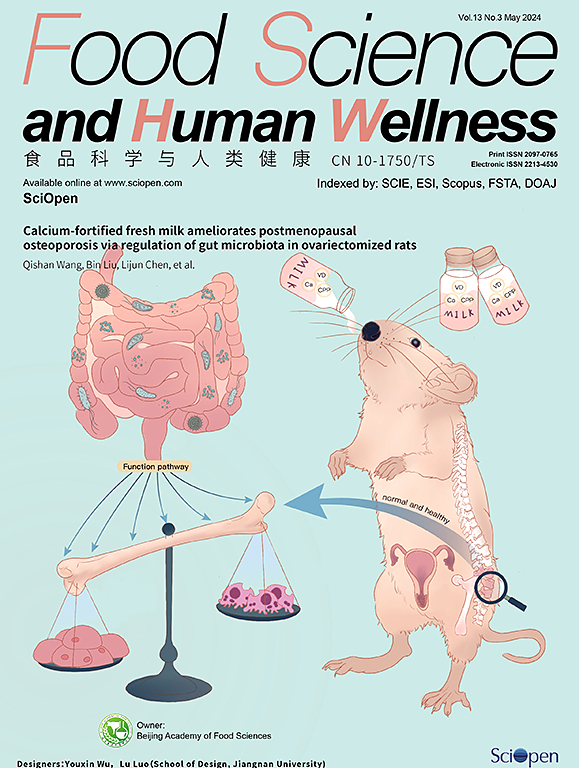Association of hypertension and plant-based dietary patterns on cognitive impairment: a nationwide cohort study in China
IF 7.4
1区 农林科学
Q1 FOOD SCIENCE & TECHNOLOGY
引用次数: 0
Abstract
This study investigated the association of hypertension with cognitive impairment and determined whether better adherence to plant-based diet (PBD) patterns may modify the association. We analyzed 4485 elderly individuals with normal cognition at baseline from the Chinese Longitudinal Healthy Longevity Survey (2011−2018). Cognitive function was assessed by the Mini-mental State Examination (MMSE), and cognitive impairment was defined as an MMSE score below 18 points. Diet patterns were assessed using the overall plant-based diet index (PDI), healthful plant-based diet index (hPDI), and unhealthful plant-based diet index (uPDI) derived from a simplified food frequency questionnaire (FFQ). Blood pressure was measured through physical examination. Cox proportional hazard regression and restricted cubic spline were performed. Participants with hypertension had an increased risk of cognitive impairment compared with normal group. The associations between hypertension and cognitive impairment were more pronounced among participants with lower PDI than those with higher PDI, among participants with lower hPDI than those with higher hPDI, and among participants with higher uPDI than those with lower uPDI. A healthful PBD pattern may attenuate hypertension-induced cognitive impairment, while an unhealthful PBD pattern may exacerbate hypertension-induced cognitive impairment in elderly. Adherence to healthful PBD pattern could be used to prevent or mitigate adverse neurological effects in the hypertensive population.
高血压和植物性膳食模式与认知障碍的关系:中国全国队列研究
本研究调查了高血压与认知障碍的关系,并确定更好地坚持植物性饮食(PBD)模式是否可以改变这种关系。我们分析了4485名基线认知正常的老年人,这些老年人来自中国纵向健康寿命调查(2011 - 2018)。认知功能通过简易精神状态检查(MMSE)进行评估,认知障碍定义为MMSE得分低于18分。通过简化食物频率问卷(FFQ)得出的总体植物性饮食指数(PDI)、健康植物性饮食指数(hPDI)和不健康植物性饮食指数(uPDI)来评估饮食模式。通过体检测量血压。采用Cox比例风险回归和受限三次样条分析。与正常组相比,高血压患者发生认知障碍的风险增加。高血压与认知障碍之间的关联在PDI较低的受试者中比PDI较高的受试者、hPDI较低的受试者中比hPDI较高的受试者、uPDI较高的受试者中比uPDI较低的受试者更明显。健康的PBD模式可以减轻高血压引起的认知障碍,而不健康的PBD模式可能加剧老年人高血压引起的认知障碍。坚持健康的PBD模式可用于预防或减轻高血压人群的不良神经系统影响。
本文章由计算机程序翻译,如有差异,请以英文原文为准。
求助全文
约1分钟内获得全文
求助全文
来源期刊

Food Science and Human Wellness
Agricultural and Biological Sciences-Food Science
CiteScore
8.30
自引率
5.70%
发文量
80
审稿时长
28 days
期刊介绍:
Food Science and Human Wellness is an international peer-reviewed journal that provides a forum for the dissemination of the latest scientific results in food science, nutriology, immunology and cross-field research. Articles must present information that is novel, has high impact and interest, and is of high scientific quality. By their effort, it has been developed to promote the public awareness on diet, advocate healthy diet, reduce the harm caused by unreasonable dietary habit, and directs healthy food development for food industrial producers.
 求助内容:
求助内容: 应助结果提醒方式:
应助结果提醒方式:


